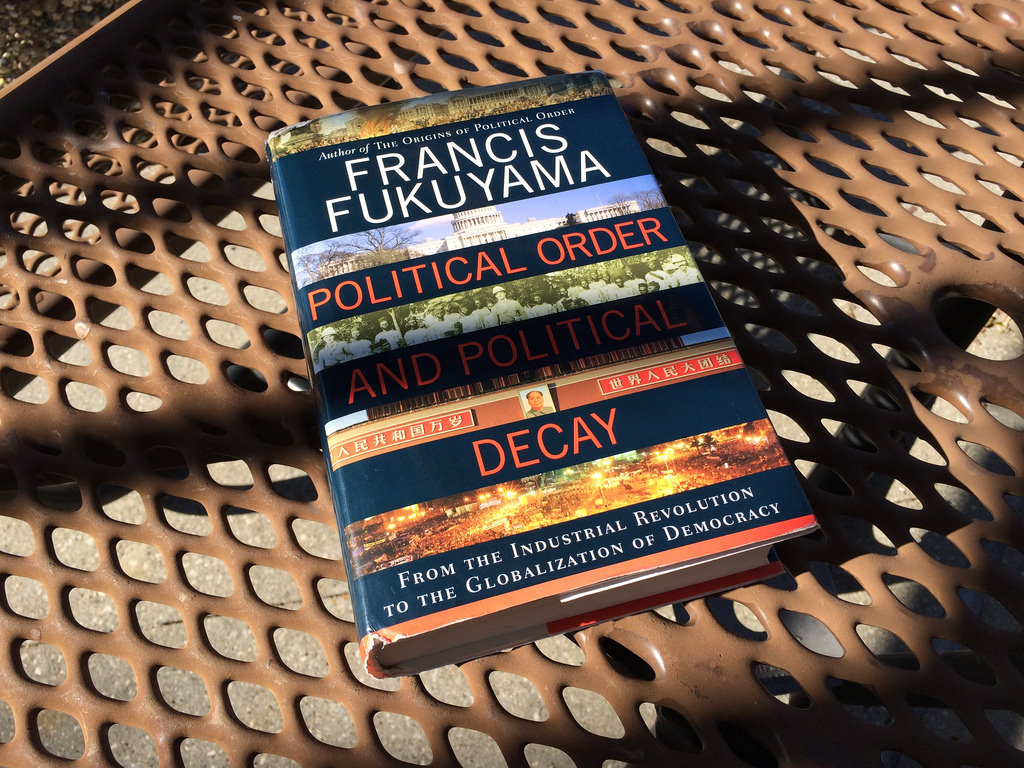Francis Fukuyama’s now-infamous and much-derided proclamation of the victory of liberal democracy now lies in tatters. It is increasingly clear that the globalised economy has made many feel that liberalism has done nothing for them, robbed them of their jobs and their identity, and comforted them only with the vaguest principles of global progress and internationalism. So the question is begged – in a liberal democracy, what happens when the demos reject the liberalism?
But Fukuyama was right in one sense. He envisioned a political system in which the old ideologies no longer held influence over voters, and we would all compete on issue-based politics. The most worrying part of the events of the last twelve months is not that Trump is a fascist, or Brexit is willful self-destruction – we can all have legitimate reasoned arguments on either side of specific political questions. The problem is that it is becoming clear that the old consensus of global liberalism is breaking down – but no one, on the left or the right, seems to have any idea what’s going to replace it.
The failure of liberalism was that it gave up trying to convince the people that it was right – it just came to be of the view that ‘There Is No Alternative’, that it could never change or be changed because it would never need to. In declaring liberal democracy the ‘final form of government’ it seemed to forget that as soon as the impact of liberal policies on people’s lives started to go south, they would reject it like they have every other failed ideology, unless it was remade, reshaped, reformed and made its case again.
In its arrogance, it discredited politics. For when you declare so brazenly that all politics is now about practical and pragmatic differences in people’s lives and that we have no ideological disagreements, you justify a technocratic form of government, and deride any alternative ideas as naive, utopian or just foolish.
As a society we have discredited and undervalued the ideas of political service and personal integrity that should define our respect for politicians. It’s no coincidence that the level of talent on display in centre-left parties across the world seems lower than it ever has before – whatever you think of the politics of Tony Benn or Nye Bevan, Harold Wilson or Hugh Gaitskell, the likes of Owen Smith and Yvette Cooper pale in comparison. If the idea in Labour is to replace Corbyn with someone equally left-wing but more electable before 2020, it’s hard to come up with a single name who could do the job of articulating an imaginative vision to the people. In part the politicians have done this to themselves, but it is equally true that in thinking we could replace ideals and imagination with material accumulation we forgot the very foundations of politics:
Ill fares the land, to hastening ills a prey,
Where wealth accumulates, and men decay
Politics is ideas, it is words, it is poetry and belief and common aspirations.
All of the momentous events and epochal shifts in modern history have found companions of visionary imagination. For every American and French revolution there was a Common Sense and a Rights of Man; industrial revolution there was a Wealth of Nations and a Das Kapital; with every explosion of democracy and individual liberty there was a People’s Charter and a Vindication of the Rights of Women, a Social Contract and a preacher who sung “I have a Dream”.
Camus once wrote, “The years we have just gone through have killed something in us. And that something is the old confidence man had in himself.”
If it is to be true that we are at a turning point in the dominant ideas that govern the world, we must rediscover Camus’ confidence, the ‘moral courage’ of Robert Kennedy, and the imagination of Thomas Paine. And we must give up the comforting notion that we sit at the precipice of human achievement, that all the ideas that shape history have come and gone. Liberalism and globalism might be killed, reformed, saved, evolved or replaced – but whatever happens the world will look like a very different place at the end of our lifetimes – it is up to us to make that place somewhere we want our children to live.

